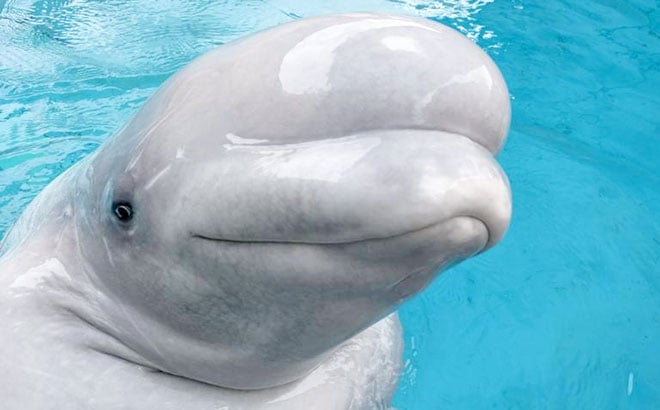Beluga Calf Born at Georgia Aquarium

Whisper, a 20-year-old beluga whale at the Georgia Aquarium gave birth to a calf on Sunday, May 17. Whisper moved from SeaWorld Orlando to Georgia Aquarium early last year. The calf weighs 174 pounds and is five feet four inches in length. Both Whisper and her calf are resting and bonding, as Georgia Aquarium's animal care and health teams monitor the pair around the clock. As with any birth there are important milestones ahead over the next several weeks, such as gaining weight and showing behavioral development, that are crucial for the calf's development.
SeaWorld and the Georgia Aquarium collaborate along other aquariums accredited by the Association of Zoos and Aquariums, the Alliance of Marine Mammal Parks and Aquariums, and certified by American Humane. These organizations work cooperatively to steward a healthy population of beluga whales in professional care sustained through responsible animal reproduction programs. 32 beluga whales live in North American accredited aquariums; providing opportunities for collaborative conservation research, and connecting millions of people to the species and the arctic environment.
Beluga whales are found in arctic waters near Alaska, Canada, Norway, and the west coast of Greenland. There are an estimated 150,000 beluga whales worldwide. Some sub-populations of beluga whales, like those in Alaska’s Cook Inlet and Canada’s St. Lawrence Seaway are critically endangered. In 2017 SeaWorld’s Rescue team coordinated with the Alaska Sea Life Center, the Georgia Aquarium and other aquariums to rehabilitate an orphaned beluga calf from the Cook Inlet population. The SeaWorld Busch Gardens Conservation Fund has supported a variety of beluga research projects, including work with endangered populations in the St. Lawrence Estuary.
Beluga whales face many threats in the ocean, such as increased noise from shipping and drilling, increased pollution in their environments, contaminated and diminished food supply, and rising ocean temperatures. The conservation of beluga whales is important for the future of arctic ecosystems. The belugas in accredited and certified aquariums help researchers and conservation managers make better decisions for the conservation of wild belugas.


